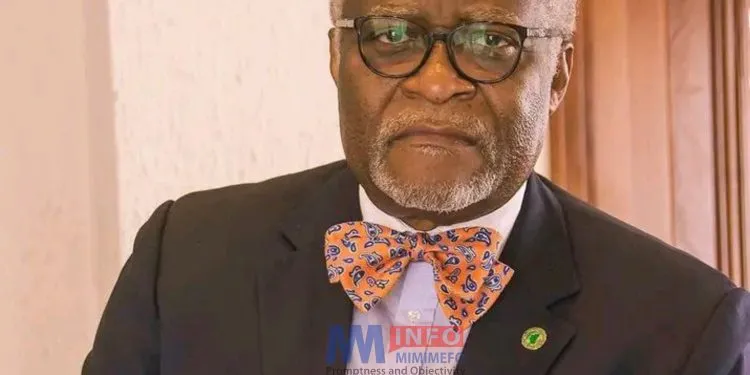“We’re not a ‘continent,’ we’re just incontinent and getting high on our own exhaust,” remarked Akere Muna, the leading figure in the battle against corruption involving Glencore in Cameroon.
In a reflection reminiscent of the classic question, “Things fall apart? The centre can’t hold any longer?” Akere Muna paints a stark picture of Cameroon’s current state, lamenting the focus on superficial achievements rather than addressing critical issues.
Under the title “Weapons of Mass Distraction,” the barrister-at-law criticised the barrage of minor concerns dominating Cameroonian discourse, ranging from the banning of coalitions to restrictions on freedom of speech attributed to the Minister of Communication.
Akere pointed to recent actions by government officials like Minister of Territorial Administration Paul Atanga Nji, who directed regional governors to suppress political activities by certain groups, equating their actions with terrorism. He also highlighted Minister of Communication René Emmanuel Sadi’s dismissal of the need for a transition, exacerbating the sense of disillusionment among citizens.
“Every time one problem seems to recede, another emerges,” Akere lamented, decrying the distractions from core issues such as political instability and economic hardship.
The barrister criticised the paralysis within parliamentary institutions, noting the delayed start of legislative business due to the absence of elected bureaux. Speculation surrounds Senate President Marcel Niat Njifendji’s prolonged absence, casting doubt on the upper house’s functionality.
Akere further highlighted the stalled appointment of new members to the constitutional council and the Supreme Council of Magistracy’s inaction, exacerbating judicial delays and institutional dysfunction.
Beyond political rhetoric and institutional failures, Akere underscored the harsh realities faced by ordinary Cameroonians, including rising prices of essential goods, increased transportation costs, and soaring youth unemployment. He noted the alarming exodus of professionals seeking better prospects abroad, despite President Paul Biya’s appeals for economic patriotism.
Furthermore, Akere criticised the pervasive shortages of power and water, which have crippled livelihoods across various sectors. He condemned the misplaced priorities of showcasing presidential achievements while essential services languish.
Comparing Cameroon’s institutional stagnation to the vibrancy of Senegal’s governance, Akere expressed a sense of collective shame, lamenting the lack of effective checks and balances.
The grim realities outlined by Akere underscore the urgent need for meaningful change in Cameroon. With elections scheduled for 2025, the looming possibility of President Biya’s continued rule until 2032 raises concerns about the country’s democratic future.
Mimi Mefo Info – ‘We’re not a continent’



